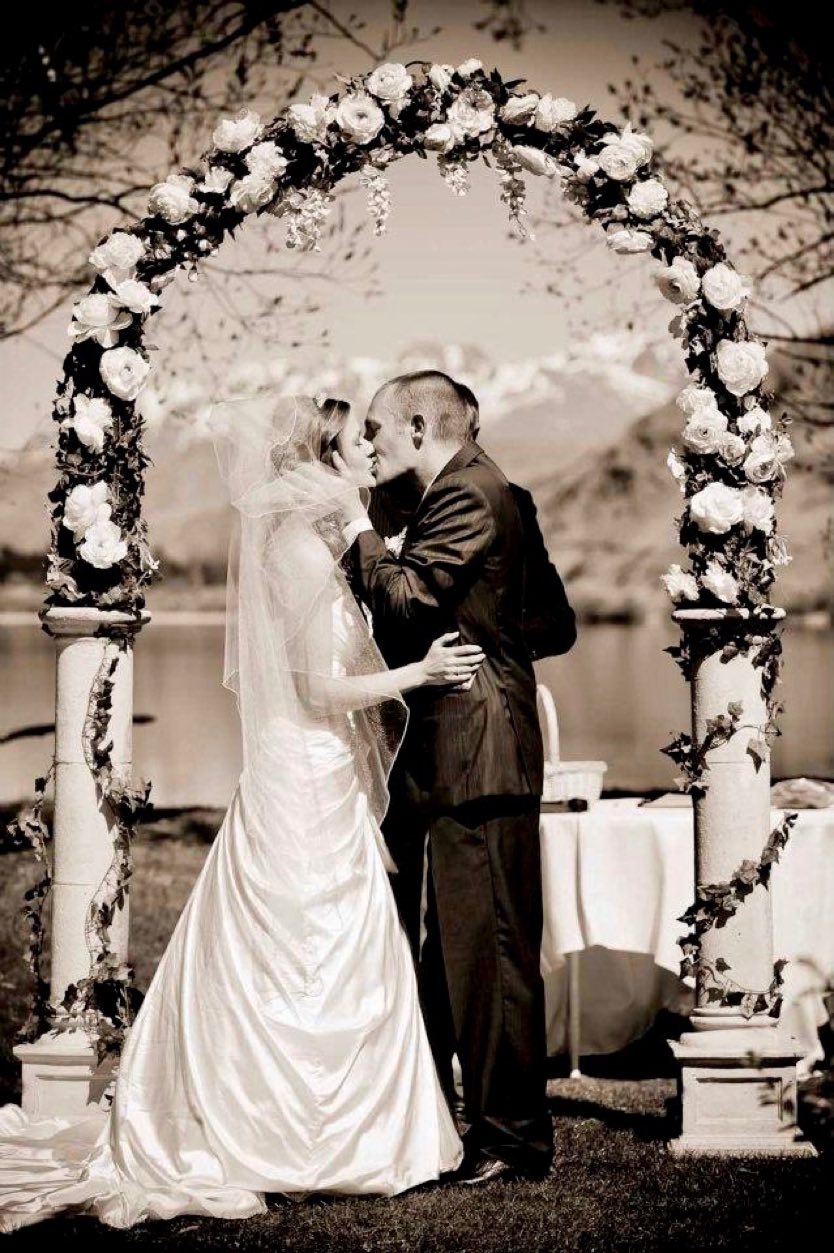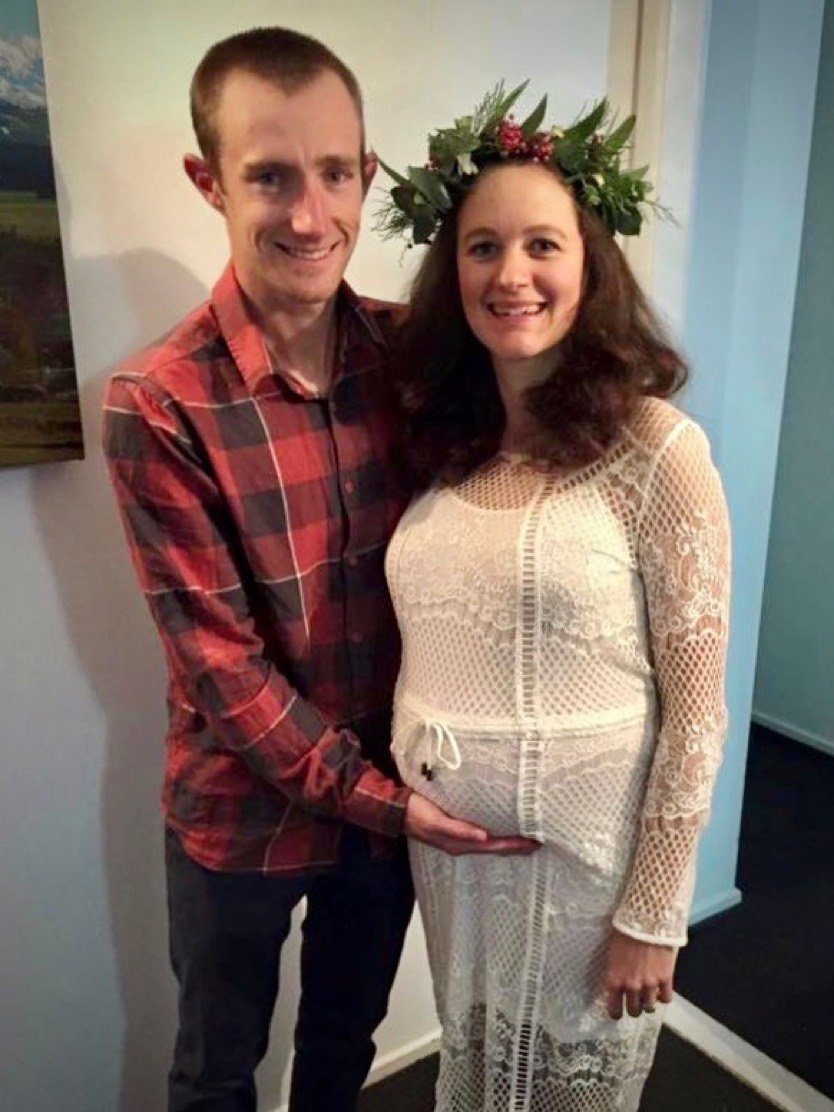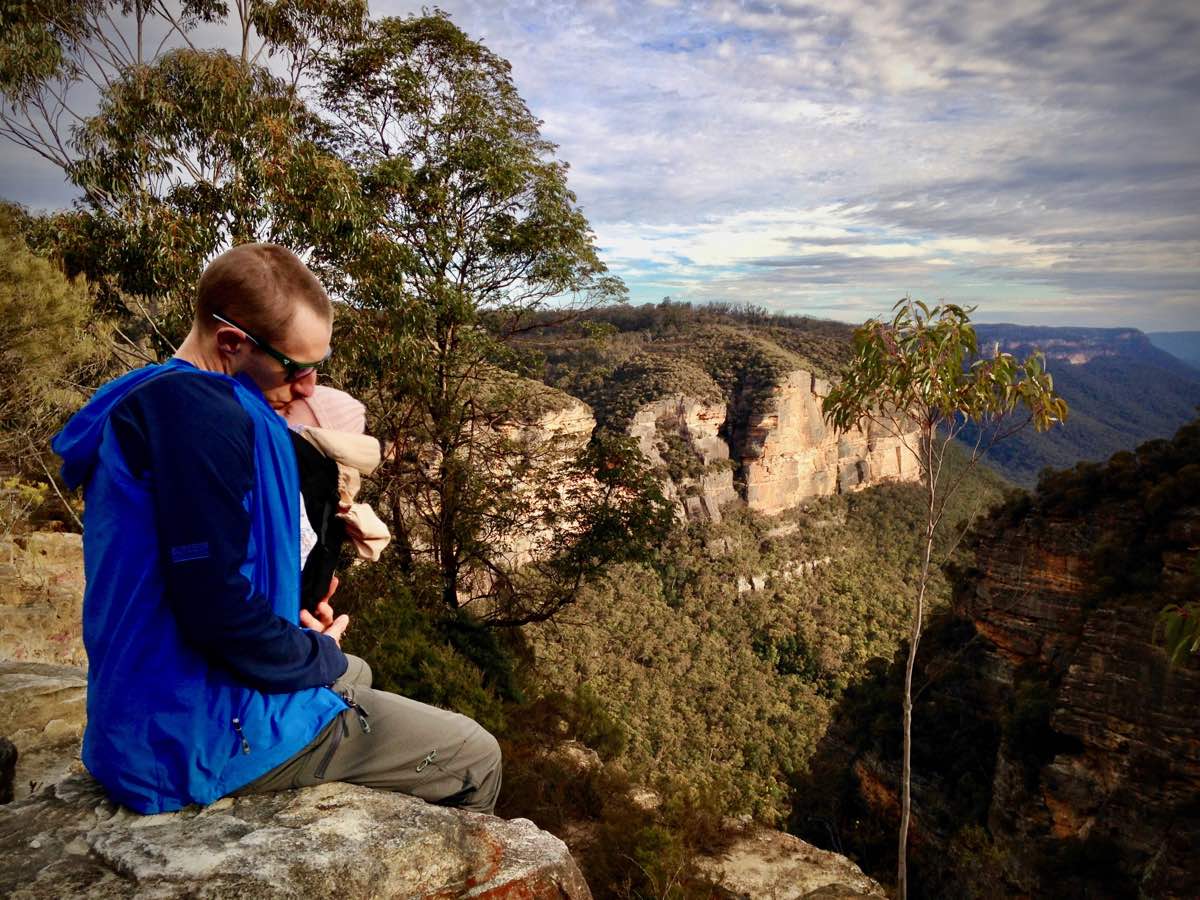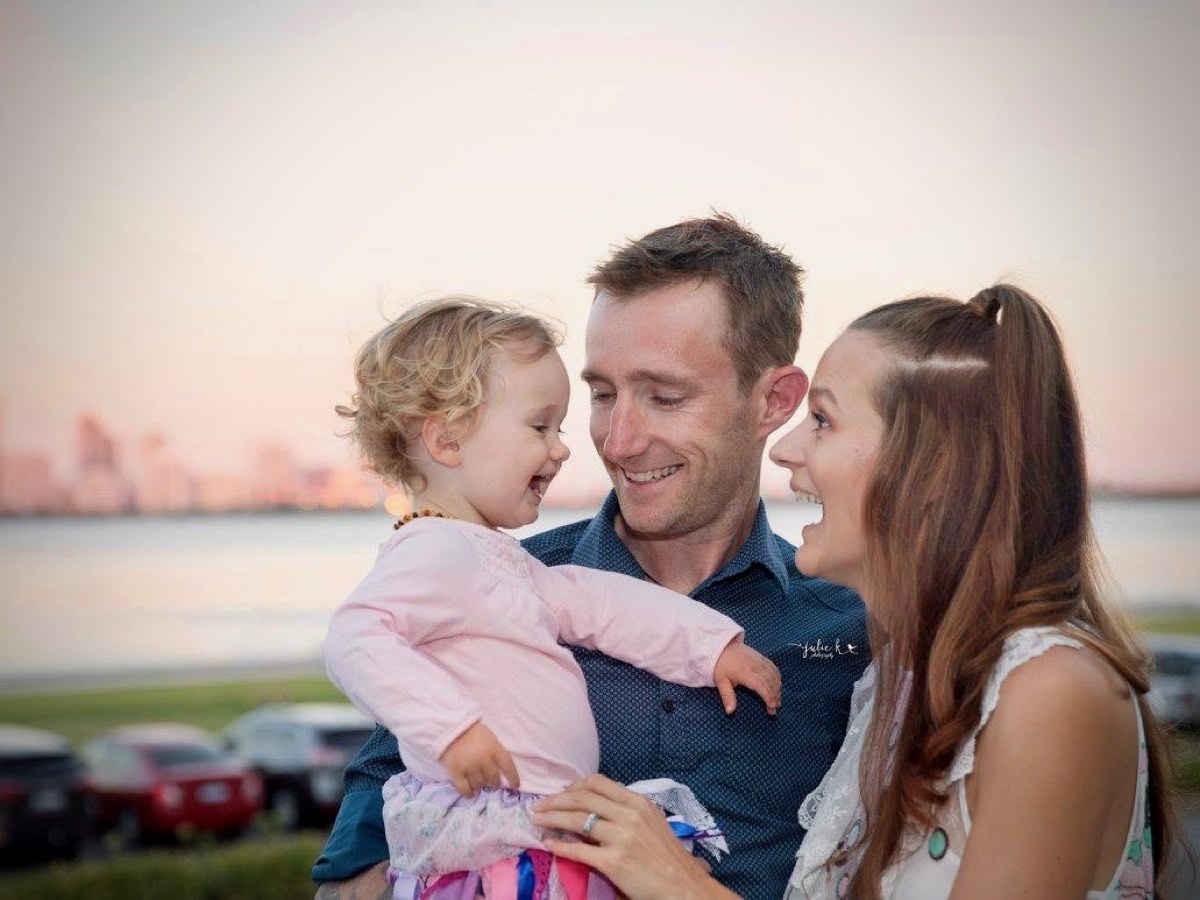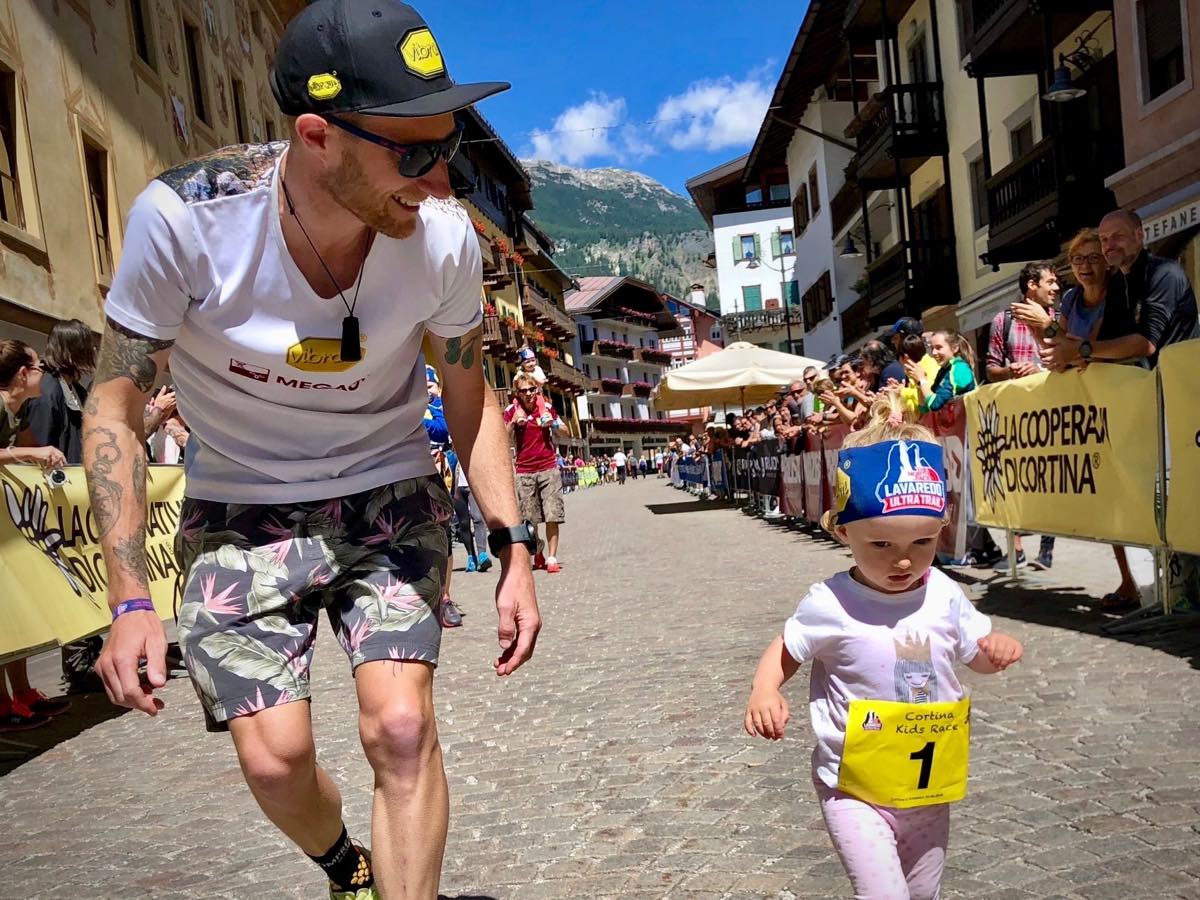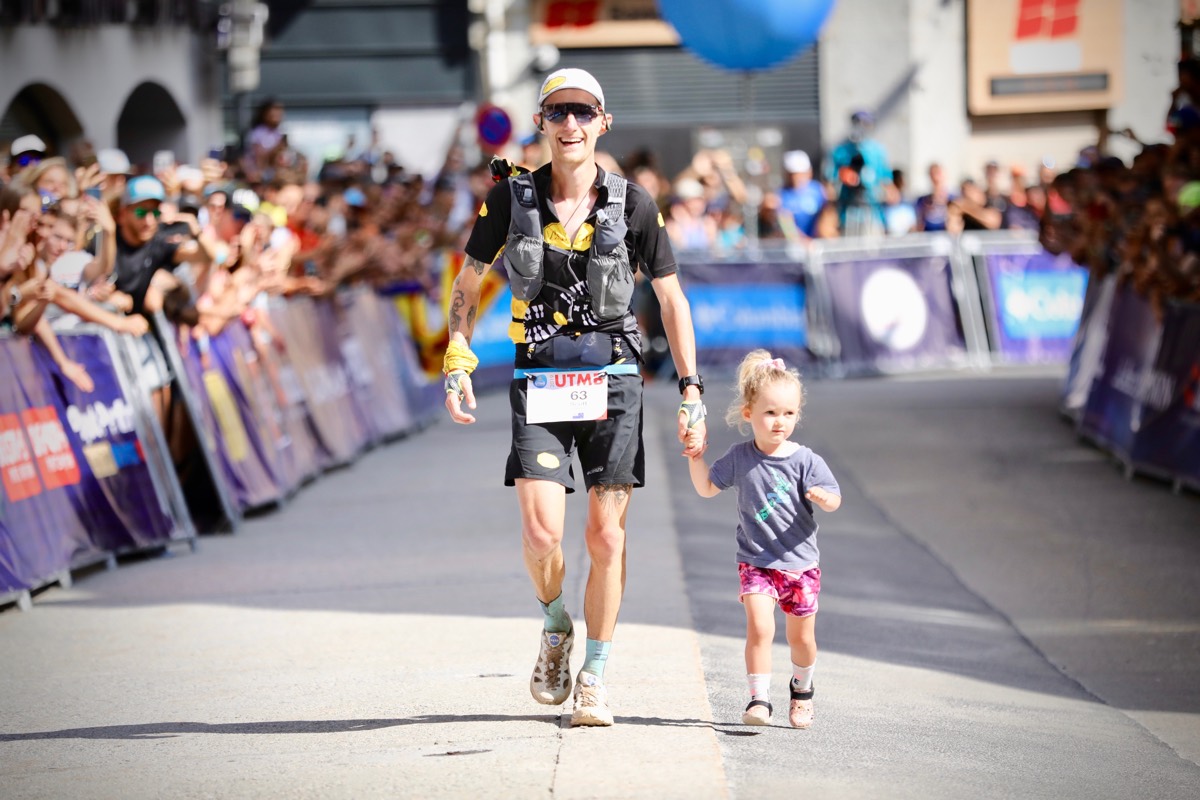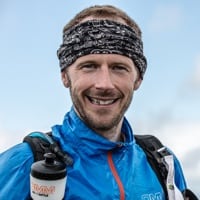“It started at the 2018 Madeira Island Ultra-Trail,” says Scott Hawker. “My stomach started playing up. I was dry-retching and lightheaded. There was no way I could continue.”
It was one of six DNFs that year for the liberally tattooed, 32-year-old New Zealander who at that point had a string of Ultra-Trail World Tour top 10s to his name.
“I kept on chasing, wanting things to come good. Lavaredo Ultra-Trail was next [he placed 19th whereas he’d previously placed fourth]. Then at UTMB I was in fifth at Champex-Lac [76 miles into the 105-mile race] and felt I was ‘that close’ to a good result. That fell apart. Then I went to China and did another race. Another DNF.”
“Every race, I’d get into a reasonable position and my stomach or sciatic nerve would derail me. No matter how much self-talk and motivation I drew on, it wasn’t working. I was thinking, I’m not enjoying this anymore. What’s the point on putting myself through these long endurance events?”
Sure, they’re only running races to some. But when you have sponsors and it’s part of how you support a family, results matter and failure can be more profound.
But enjoying one’s time in the outdoors is important too, and that was fostered in Scott’s youth. Growing up in Christchurch on New Zealand’s beautiful South Island, the Hawkers were an outdoorsy family. “One Christmas Eve, my parents took me and my brother–we must have been six and seven–on an overnight tramp. They said we could take one present from under the tree with us. I think that was my first trip into the mountains.”
His uncle Shane was an adventure racer and multi-sporter. “He was always keen to take me and my brother out. I remember him chucking me on the front of a tandem kayak and off we went down a river. I remember doing little orienteering events and even hiking with my great-great-grandad [no really]. There’s always been that sense of adventure, that wanting to get outdoors, as a family.”
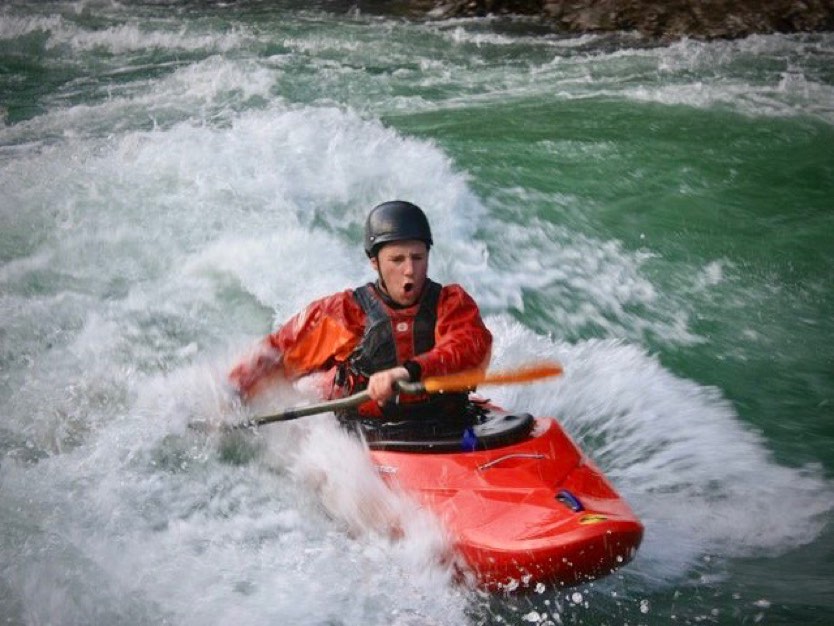
Scott Hawker whitewater kayaking in 2010. All photos courtesy of Scott Hawker unless otherwise noted.
As a teen, Scott played football [American soccer] competitively. He preferred center midfield, the position that usually covers the most ground in a match. “I dreamed of playing for [the English Premier League team] Manchester United,” he says. Scott’s skills were promising, but he missed out on selection for the under-17 national Federation Cup squad.
“I began to realize I wasn’t going to make it professionally. My brother Michael was a really good golfer, playing off a +1 or +2 handicap, pushing for his Asian PGA Tour card. It felt like he was going to be the family sportsman. It was hard to take, but you pick something else to focus on. It also got to the point with football where we’d lose because of someone else’s mistake and I thought it’d be cool to do a sport where it’s totally on you.”
He would sometimes run a few miles to keep fit for football, and at 17 years of age and with special exemption, Scott ran the Christchurch Marathon in 3:10. “It was to get bragging rights with my mates. I would never have said I was a runner. I was running for another reason.”
Then came university. “I started enjoying some cold brown beverages a bit more than playing sport!” Scott studied for an education degree at Christchurch University and also met Australia-born Liz (who has Kiwi parents) in 2009 at a dance party. “We went to one more, and then realized the reasons for going were to find a partner. Once we’d achieved that, we started doing other activities instead.” The plan was to move to Perth, Australia, once they finished studying, where Liz had grown up and could be closer to her mom.
Before moving across the Tasman Sea, Scott, 21, felt an urge to do New Zealand’s famous multi-sport race, the 2011 Coast to Coast, a 243-kilometer run, kayak, and cycle challenge. “It’s like the Comrades Marathon in South Africa. Everyone wants to know your Coast to Coast time. I said to Liz, ‘If I don’t do the Coast to Coast before we move, I’ll be a 40-year-old with a big beer gut wondering what could have been.’ It went really well [he placed fourth]. That was the beginning of the endurance-sport side of things.”
When they moved to Australia, Scott got in touch with some local runners. “The first run I did in Australia was 46k through the bush, the longest run I’d ever done. I took my bag of gummy bears!”
His first ultramarathon race came two months later, the 2011 Bunbury Ultra 50k. “It was pretty cool to finish the marathon distance and know you’re not done yet. There were a lot of people supporting and it was a really nice atmosphere.” Placing second didn’t hurt his enthusiasm either.
The years 2012 and 2013 brought increased ultra racing, increased distances, and increased domestic success. Along with all this came an increase in niggles, too. “Anton Krupicka was everyone’s god, running 130 miles a week. So I spent the best part of 2012 and 2013 trying to do 100-mile weeks and my body was not accepting it.”
He started working with a coach and in 2014 turned toward international races. Fifth places at the Hong Kong 100k and Tarawera Ultramarathons 100k were markers. He also took seventh at that year’s Ultra-Trail Australia 100k.
At this time both Scott and Liz–she a former legal executive–worked as boarding supervisors at Clontarf Aboriginal College. Because their holidays synced together nicely, they would travel the globe together for races. “Liz has always been interested in travel. We have pretty much been traveling together since we met, initially between Australia and New Zealand, but also to Bali. Our two-week trips soon turned into three weeks, then four. 2014 was insane. The credit card was getting destroyed! It was like, ‘If I can do some races, get noticed by sponsors, and get some support… here’s an opportunity. Let’s see.”

Scott (left) with his uncle Shane (middle), and father after the 2015 Croesus Crossing race in New Zealand.
“My boss at the time was very supportive. He saw some value in it, which was a great motivator. The kids would follow the races online and I’d get back and they’d be like, ‘Sir, we saw you drop down to here and then you came up to here.’”
Next up was Lavaredo Ultra Trail and Scott recalls feeling overwhelmed by a line-up including Krupicka and Mike Foote. But he placed seventh. “After Lavaredo, sponsors said they could get me into UTMB.”
In hindsight, doing the 2014 UTMB, his first 100 miler, was “stupid. I vividly remember getting to Les Contamines [after 30k] and thinking Dear lord, what have I done? My legs felt like they’d done 100k. It became a race of survival, just trying to get to the finish.” He placed 58th. “I’m proud I finished. But when I’ve felt remotely like that again I’ve pulled out. It’s not good for my career to grind races out like that.”
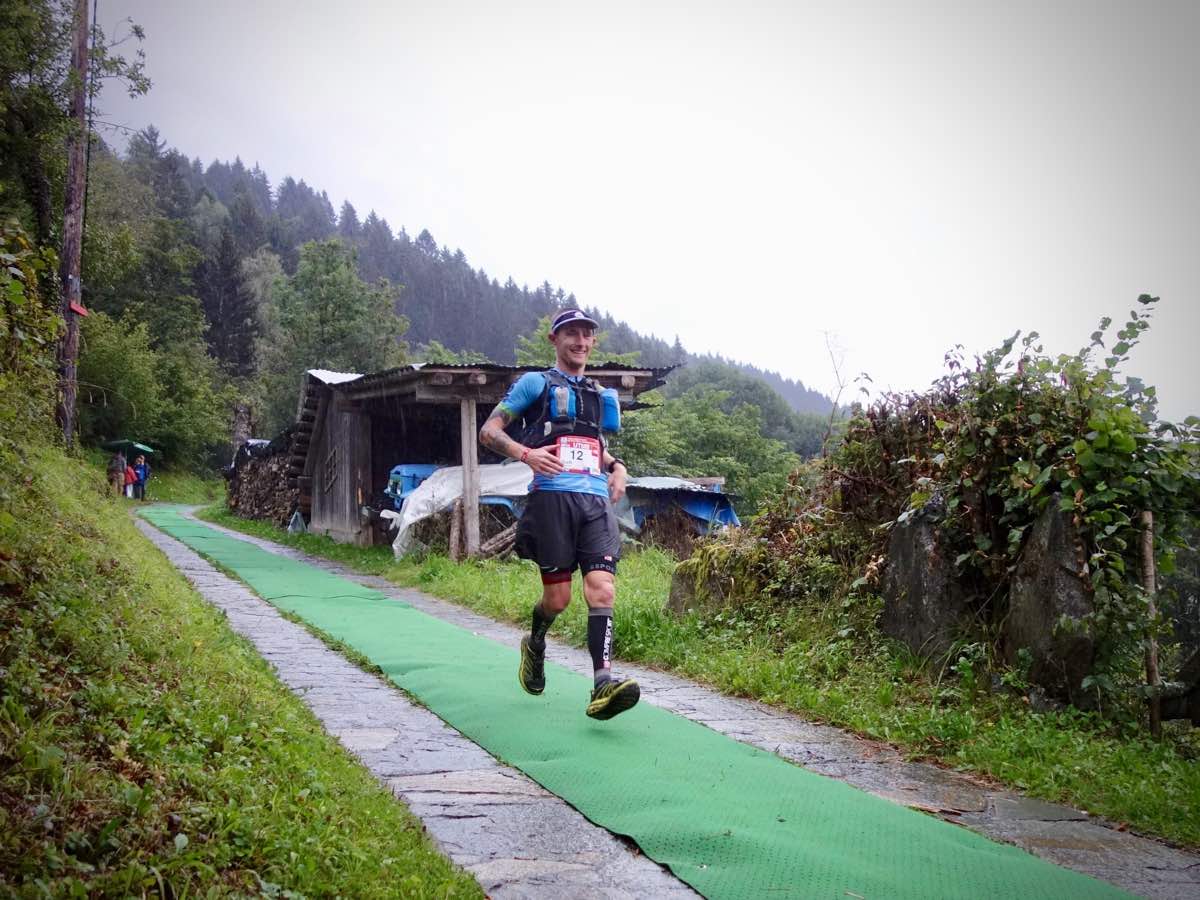
Scott in the early miles of the 2014 UTMB, where he’d finish his first 100 miler in a difficult debut. Photo: iRunFar/Meghan Hicks
Scott and Liz moved across Australia to the Blue Mountains, which set him up nicely for 2015’s Ultra-Trail Australia, in the same area. “The field included Dylan Bowman, François D’haene, Julien Chorier, Jordi Gamito, Brendan Davies, and other top guys.” He placed second. And then fourth at Lavaredo Ultra Trail. “Having committed so much financially the year before trying to establish myself, it felt like things were panning out.”
However, life threw him a curveball. “We’d been trying to conceive for 18 months. We saw several doctors and a natural fertility specialist, and had some tests. I was the issue. It may have been the fatigue and the heat generated by compression shorts. Not one thing, but collectively these little things weren’t helping. I stopped running and racing, which was hard, because I felt fitter than ever. But it was worth it.” Scott was out of action for 10 long months in late 2015 and early 2016.
Their daughter Sienna is now three. “There is a sense of responsibility and wanting to be a good role model for Sienna. Trying to eat well and look after your body, hopefully that will help shape what she ends up being as a person. I always remember my dad working really hard. I did work experience at my dad’s work and saw how hard he worked. And my mom too; her work ethic of head down, bum up, do what needs to be done. It has shaped who I am. If it’s raining, you put on a jacket and go. ”
Liz, who before becoming a mom was a recreational runner, and Sienna have crewed all but two of his races. “Even if it’s two or 3 a.m., Sienna is always there with Liz. It’s amazing. I have no idea how Liz does it, looking after your athlete during a race as well as looking after a little person. I often suggest she doesn’t have to, but she wants to. At UTMB, she’ll see me at Les Contamines [at around 30k], drive straight to Courmayeur [at about 80k], have a couple of hours sleep in the car, get up, and crew me there. She knows what to say and when. She knows when to give me a kick up the arse and tell me to harden up when I’m having a bit of a moan. Without Liz’s support, none of this would have happened. It’s not only on race day either; she’ll often be preparing my sushi balls on a Friday night before my long run.”
The new dad bounced back well in 2016. And 2017 brought top-five finishes at a number of international races leading up to an 11th place in a stacked field at UTMB–including overtaking this writer a few miles from the finish, the rascal! “That year was bonkers, the most competitive ever. I was pretty happy with [11th].”
However, 2018 wasn’t nearly so good. A combination of sciatic-nerve issues and consistent stomach problems during races led to that previously mentioned string of DNFs, including at UTMB. “At UTMB, my stomach was a train wreck. I got incredibly dehydrated. Then it was really cold and I was really thirsty and I was drinking way too much fluid. A doctor thought all the fluid in my stomach was causing my esophagus to twist, causing the dry-retching. My stomach was so sore it felt like a four-day bender… You’ve got to pick your battles sometimes.”
For his sport career, this was his rock-bottom moment. “I had a long chat with Liz last fall and I said, ‘I think I’m done with the sport.’ But we sort of worked out that my passion for being in mountains and running was still there. It was the race-day stuff, the body and stomach, that was the problem. We decided to give it another chance.”
Scott talked to a nutritionist. “Up until last year I could eat a steak and cheese pie on the go. Because of that I fell into this trap of taking gel after gel after gel and sugary drinks and all this sports-nutrition crap. It worked for a while. But because of all the gels, I’d wash them back with water. Then on the downhills my stomach would be sloshing away. So now I’m more calculated with hydration and I’ve almost totally changed my nutrition. I still take some gels and chews, but the base of my nutrition is solid foods now. I love sushi rice balls with avocado in the middle, mashed potato, peanut-butter sandwiches, and Marmite and avocado sandwiches. Touch wood, it’s been working, even at Hong Kong in the heat.”
Scott also took on a new coach. “I had been coaching myself at that point and had some success, but I wanted to see what was possible, so I started with David Roche. Despite training fairly consistently, with the way the year panned out, I only did two specific training sessions from May to UTMB [in late August]. Just two hill-repeat sessions, and a couple of races. David wanted to really ease into things and keep my body as happy as possible.” Hawker averaged 50 or 55 miles a week during training.
Scott also approached mental endurance coach Danielle Snyder. “I didn’t want to get into a position in a race where I was in a good place and not know what to do. I chatted to her every week from mid-late June through UTMB. She gave me strategies to practice in training and to promote a healthy mental space in everyday life, hoping to transfer that through to race day. That was monumental.”
Scott also credits his friendship with his “Catalan brother” Pau Capell, this year’s UTMB champion, for helping him approach the sport more seriously. “We met in 2016 at Ultra-Trail Australia and he was this up-and-coming guy, super confident, young, with a bit of a swagger, ultra competitive. He pushed the pace–which he still bloody does–and won. We became good friends and spend quite a bit of time together [including this Christmas]. Seeing how Pau approaches trail running, with his attention to nutrition, training, and his focus, it was a turning point. I realized I couldn’t just rock up to races and hope for the best. He’s the benchmark, one of the top dogs at the moment. He brings out the best in me when I race against him.”
This year’s racing thus started with a new vigor. At Hong Kong 100k in January, his only focus was to finish. “All I wanted was to finish the race without stomach issues. I got through 60k and once I realized my stomach was good, I was so happy. I had my passion back.” He took fifth.
And he was back at UTMB, too. “My sciatic problems have been off and on for 18 months. But all this year I’ve hardly had a peep out of it. Whether it was me being a bit nervous on the start and holding onto some tension or something, but I felt it on the way down to Saint-Gervais [at about 20k].”
“I walked 80% of the downhill into Les Chapieux [at about 50k]. I was looking for a ride back to Courmayeur [at around 80k where Liz and Sienna were waiting to crew him]. Jason Schlarb and Harry Jones came in and Harry said, “Scotty, mate, hang in there. Give it one more go.” I was like, ‘Jeez, Harry, you bastard.’ We’d done quite a bit of training together; he’s a good mate and he looked devastated for me.”
So Scott started shuffling up the road from the checkpoint. “After five or six minutes, I noticed the pain had gone. I was moving really well, and things got better and better. By the time I got to Courmayeur I was in 1oth. The plan had always been to be in about 10th! That next climb, I felt absolutely amazing. I had run it a few times in training, once with Hayden Hawks and we’d destroyed it, and I was thinking about that. I passed three or four guys on that climb. Then, there’s long undulating traverse and I was passing people without effort.”
When it was all said and done, Scott was the third runner to return to Chamonix. “Third at UTMB? To finally get on the podium at a race like UTMB was almost just relief. It was a long time coming.”
“It’s exciting to think about next year. I mean, jeez, if I can do three hill-repeat sessions ahead of the next UTMB…!”
Call for Comments (from Meghan)
Have you run, adventured, or raced with Scott Hawker? Leave a comment to share your stories from sharing the trail with him!

